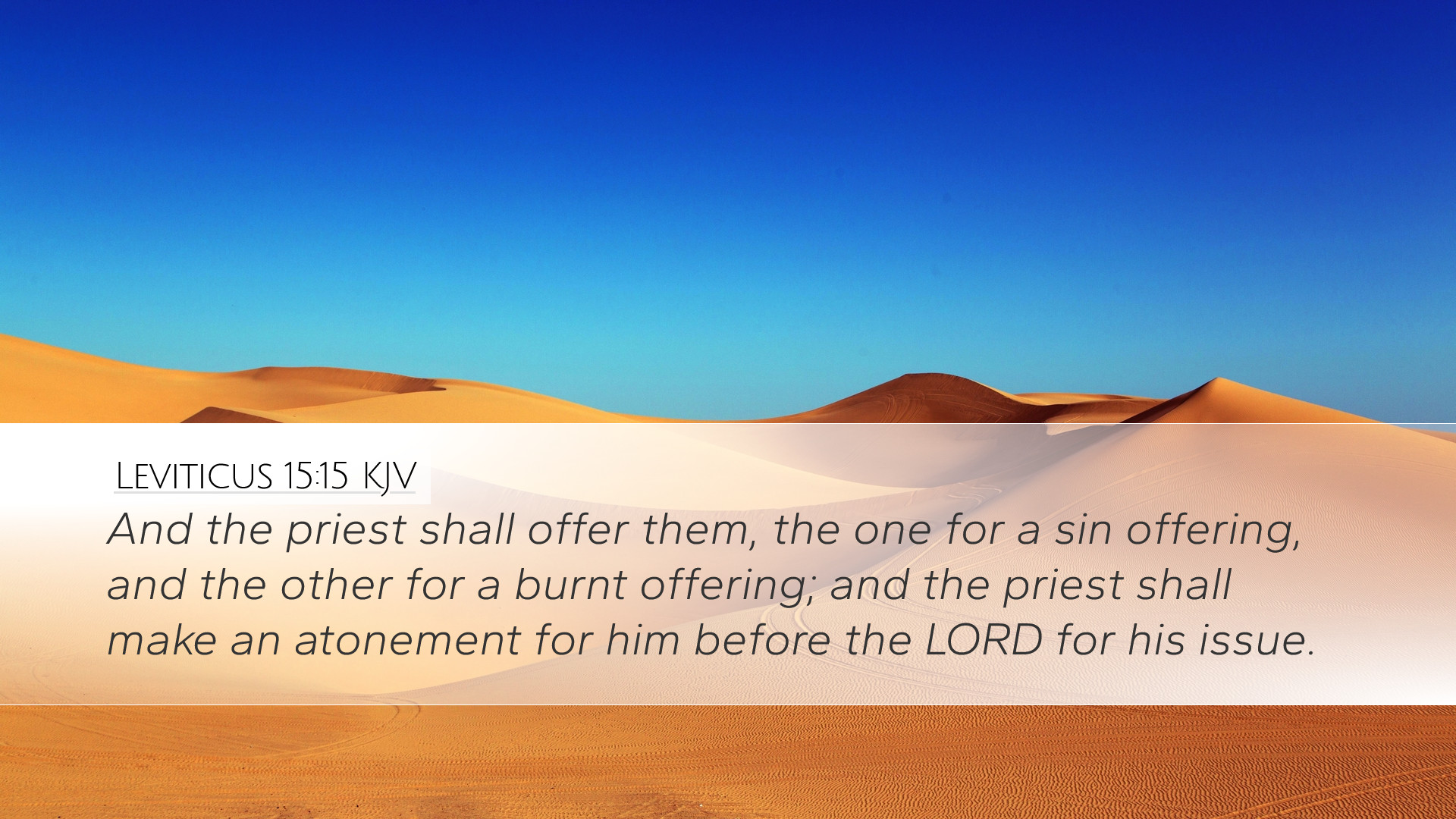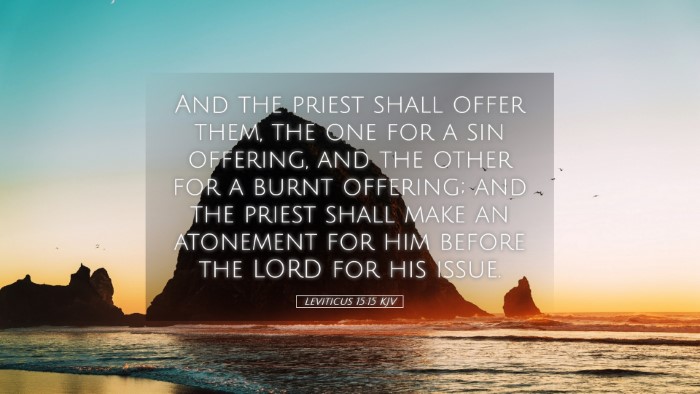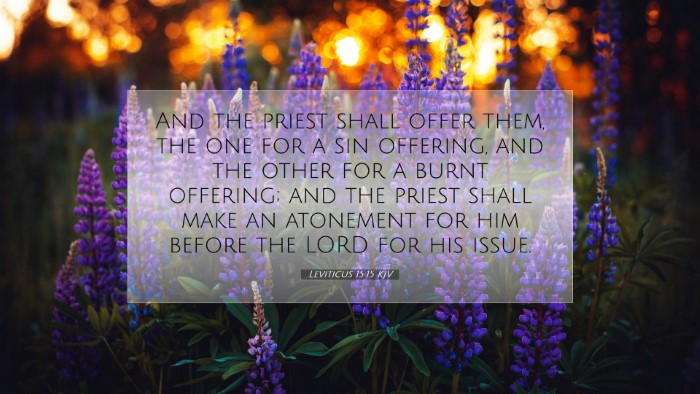Commentary on Leviticus 15:15
Leviticus 15:15 states, "And the priest shall offer them, the one for a sin offering, and the other for a burnt offering; and the priest shall make an atonement for him before the Lord for his issue." This verse comes from the Holiness Code, which outlines laws concerning cleanliness, health, and ritual purity. Understanding this verse requires knowledge of its cultural, historical, and theological implications.
Contextual Framework
The chapter addresses laws regarding bodily discharges, a topic that reflects Israel's need for purity in the presence of Yahweh. Matthew Henry notes that these regulations remind the people of God's holiness and their need for atonement. Such rituals emphasize the seriousness with which God considers holiness and separation from sin.
The Role of the Priest
In this passage, the priest acts as a mediator between God and the individual, which is crucial in understanding the doctrine of atonement. Albert Barnes highlights that the priest’s role is vital for restoring an individual who has become ceremonially unclean. The priest's actions not only restore the individual's standing in the community but also reinstate them in their relationship with God.
Atonement Through Offerings
The mention of two offerings, a sin offering and a burnt offering, is significant. Sin Offering: According to Adam Clarke, this offering signifies the acknowledgment of sin and the need for forgiveness. Burt Offering: This offering is a symbol of devotion and total surrender to God. Together, they reflect the whole process of repentance and restoration.
Theological Insights
This verse encapsulates key theological themes that transcend the Old Testament into New Testament concepts. The dual offerings signify the necessity of both recognizing one’s sin and dedicating oneself to God’s service. This mirrors the Christian understanding of confession and commitment found in the New Testament, wherein believers can approach God with confidence due to Christ's ultimate sacrifice.
Cleansing and Restoration
The act of atonement described here highlights the themes of cleansing and restoration. According to Barnes, this is not just a process of ritual compliance but fundamentally about restoring the broken relationship with God. The individual acknowledges their condition and, through the mediation of the priest, seeks to re-enter the sacred community.
Implications for Modern Believers
Pastors and theologians can draw several applications from Leviticus 15:15:
- Understanding Purity: It reminds us of the call to maintain spiritual purity and the need to approach God with a contrite heart.
- The Priesthood of Believers: As discussed by Clarke, today's believers are called to intercede for one another, reflecting the role of the ancient priests.
- Atonement and Grace: This passage foreshadows the grace and atonement provided in Christ, solidifying the necessity of confession and the transformative power of God’s forgiveness.
Conclusion
Leviticus 15:15 serves as a vital link between ancient Israelite practice and contemporary faith. Through careful study of this verse, informed by commentaries from Henry, Barnes, and Clarke, we see a clear picture of God's desire for holiness, the role of mediators, the significance of atonement, and profound implications for the life of the believer today. As we meditate on these truths, may we grow in our understanding of God’s holiness and our response to His grace.


